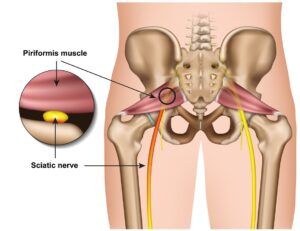The NDIS is well-revered for covering a large amount of costs regarding disability, but it is also important to know what, exactly, it doesn’t cover. People who help everyday Australians navigate the NDIS are always more than happy to guide them through this understanding, but we thought we would also share some information about what the NDIS doesn’t actually cover.
Here is some additional info on this important subject for people living with a disability Melbourne:
The NDIS doesn’t cover expenses that the government already provides
The NDIS essentially exists to offer services that government departments don’t cover. When you are a person living with a disability, it can be hard to know how to find support and who to receive it from. The NDIS works in conjunction with other government departments and they often work interchangeably with one another.
When it comes to who covers what expenses, there are three broad categories covered: healthcare, Centrelink and the education system.
In this piece we will look at each three and how they coexist with the NDIS:
How does the healthcare system work with the NDIS?
This is a complex situation to cover and so we thought we would share some important light on it. Of course, Medicare came long before the NDIS, so it is safe to assume that anything Medicare covers will not be covered by the NDIS. However, it is complicated, so you should never overlook asking your NDIS coordinator if you would like further information regarding your loved one and what is covered by the NDIS/could be covered by Medicare.
What about medication?
The NDIS, to date, cannot subsidise any medication costs. We understand that this is a very common inquiry regarding NDIS expenses, but unfortunately you will have to go through the healthcare system in order to find subsidies regarding medication.
The healthcare system
It’s perfectly understandable that many people become confused about what the NDIS funds and what the educational system funds. Essentially, you cannot claim any school fees or payments under the NDIS, so any school fee requests cannot be made with the assistance of the NDIS.
The NDIS exists in a manner that can help explain this on a case-by-case basis, so if you would like to find out more regarding this situation it is always a very good idea to ask your coordinator or read more on the NDIS website’s information page.
The NDIS and education system coexist and work together on many processes, and Australian schools are well-equipped with the knowledge to help students and their loved ones understand what can be covered by the NDIS regarding education.
Does the NDIS affect Centrelink payments?
Many NDIS participants also receive Centrelink payments, with the Disability Support Pension (DSP) being the most common. But does the NDIS affect the Centrelink payments of a person living with a disability? The answer is: no, the NDIS will not have any impact on the person’s Centrelink payments – any NDIS payments are not considered as income and are therefore not tax payable.
We hope this piece has cleared up some important healthcare support
questions you may have had about how the NDIS correlates to some of the country’s most important departments.
Many aspects may be affected on a case-by-case basis, so it is also a good idea to confer with your coordinator and the relevant departments if you have further doubts about what the NDIS can and cannot cover.




